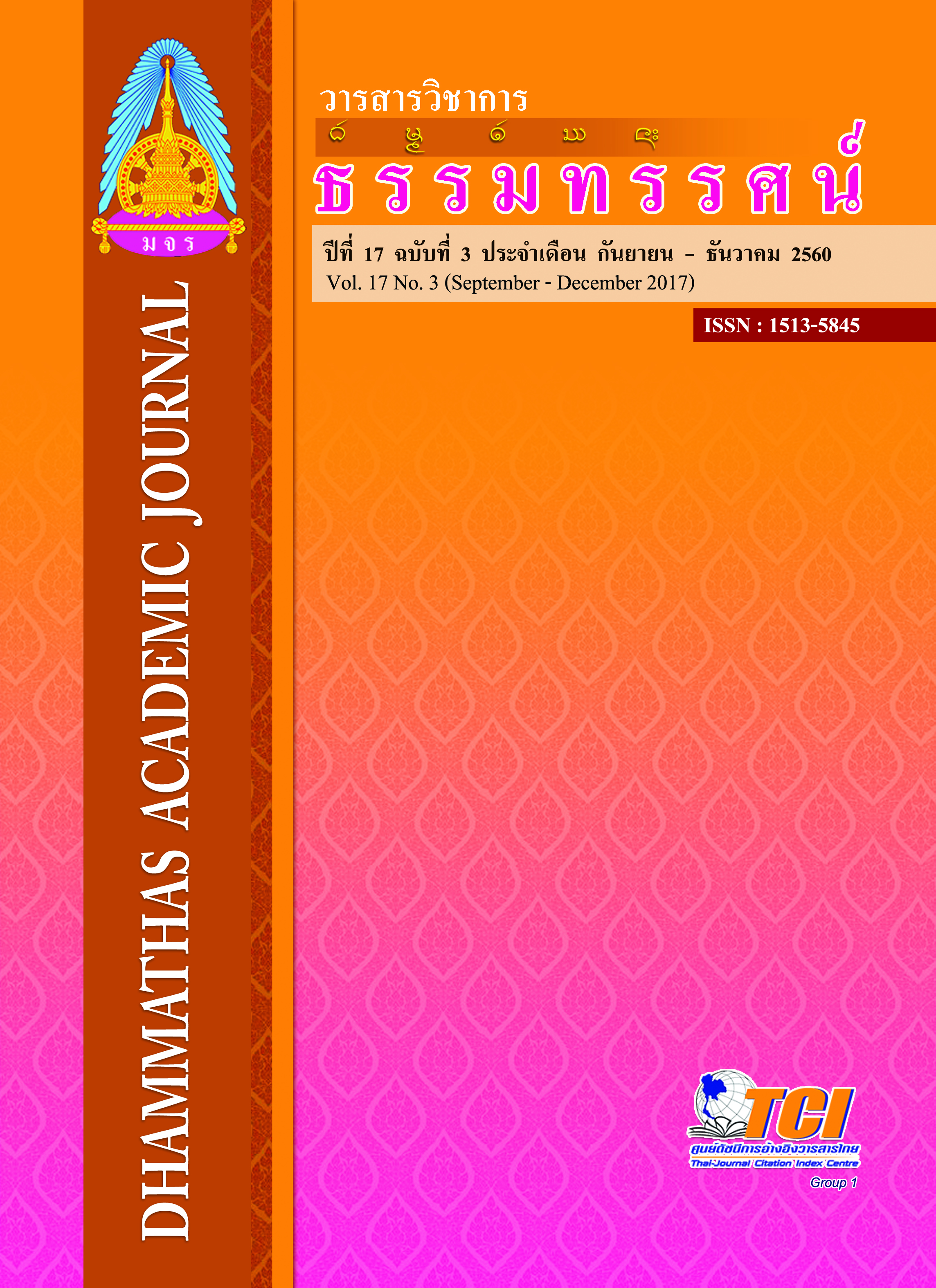The Study of The Buddhadhamma Activity Application for Liquor Addicts Remedy in Khonkaen Province
Main Article Content
Abstract
The main objectives for this research, were 1) to study the treatment for alcohol addiction, both Buddhadhamma alternative and modern medicine, 2) to study the treatment for alcohol addiction operated by Wat Buddhakasem Namphong district in Khonkaen province. and 3) to study the applied activities based on Buddhadhamma treatment from Wat Buddhakasem Namphong Dristrict Khonkaen province. This research was the quantitative research by studying from documents. The data provided in this research was collected by interviewing ; the research will be presented in descriptive analysis.
The Result of this study were as follows:
The treatment based on Buddhadhamma and alternative and applied activities such as keeping their words, five precepts observation, morning and evening chanting, meditation practice and walking up and down, and listening to the monks when they Dhamma’s talking focuses on how they make the patients feel at ease and make them think critically. As for modern medicine, they should use the “Brief-intervention” method and keep in mind the differences between each patient. The improvements that are needed the direct behavioral control are deducting the factor which makes the patient consume alcohol, find the alternatives such as exercise, rewarding themselves when they accomplish each stage of treatment, making patient believe that they can change, and create the good relationship between patients and doctors.
There were 3 methods of liquor addicted treatment of Wat Buddhakasem as follows :- 1) Dhamma medicine treated by Buddhadhamma doctinces i.e. Bojjhanga examine. 2) body and mind treated by Samatha and Vipassana Kammathana, 3) herbal treatment : by making a vow in front of Buddha image and Buddhist monk for not taking liquor in a fixed period before taking herbal medicine.
These applied activities according to the Buddhadhamma alternative and useful activities help the patient in the way that they can make themselve more focus on the important things in life. Also, it makes patients think neatly and realize the consequences of drinking alcohol. This certainly leads to the positive actions to patient themselves, their local schools and temples, and their quality of life.

